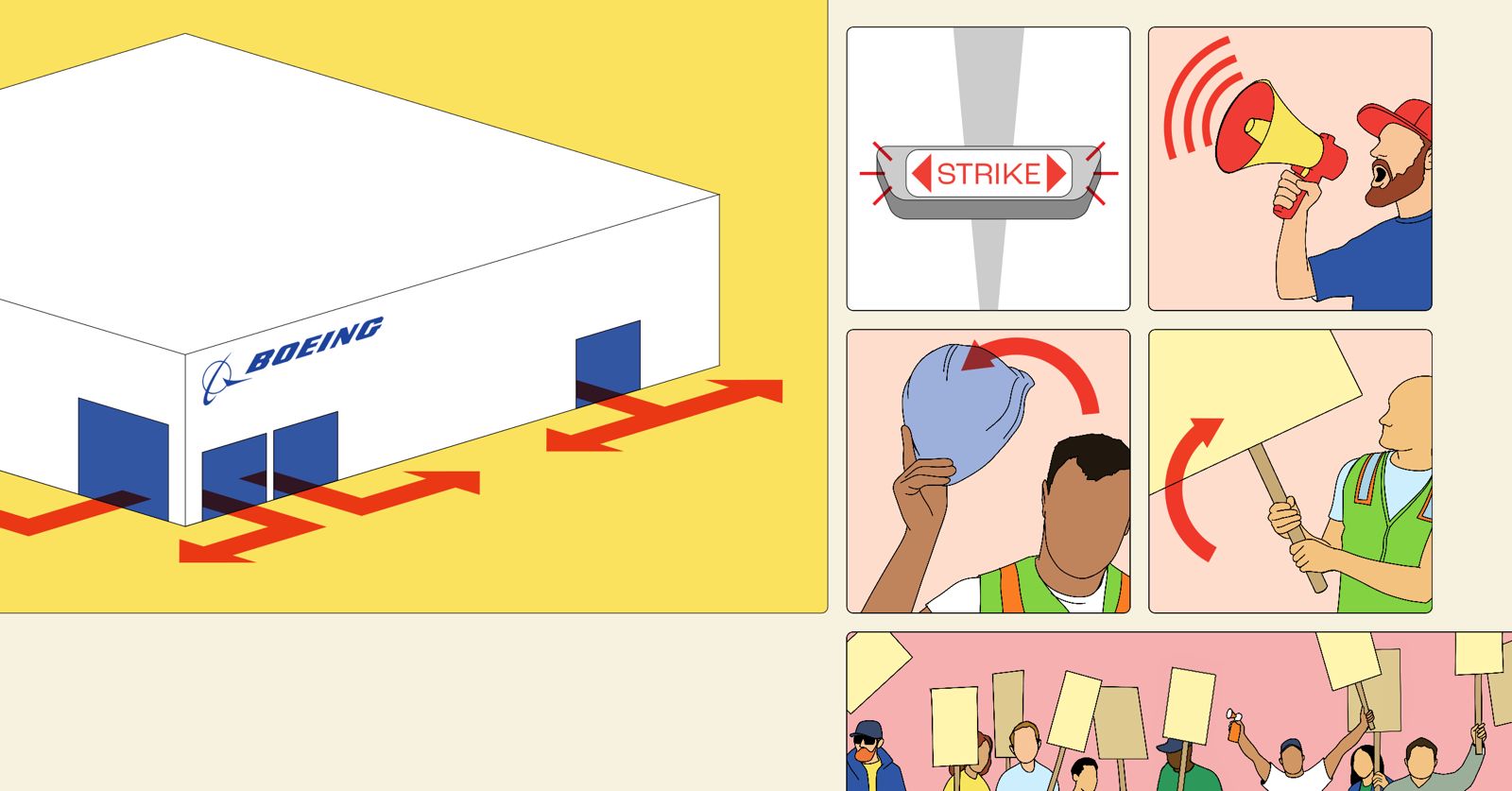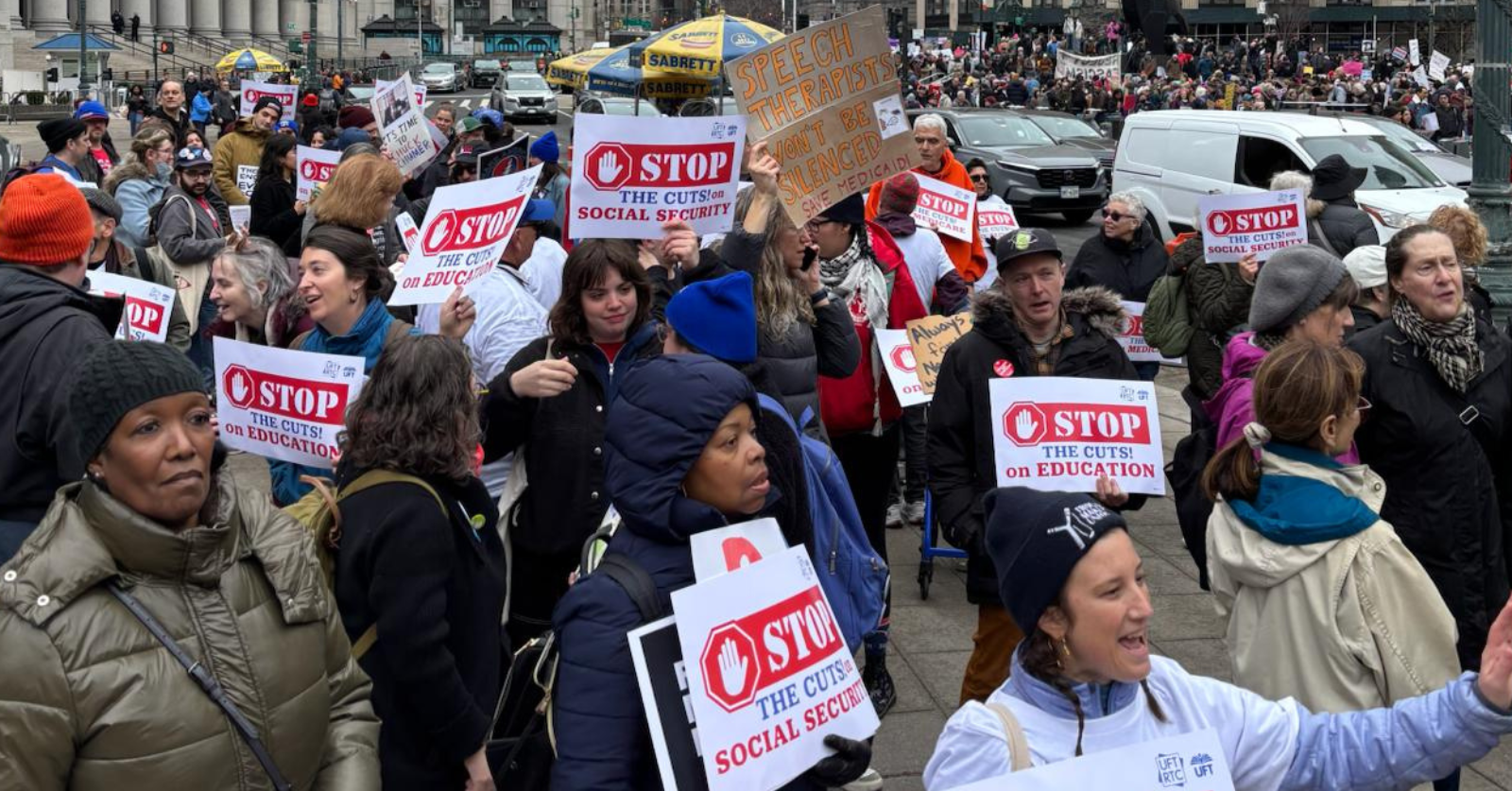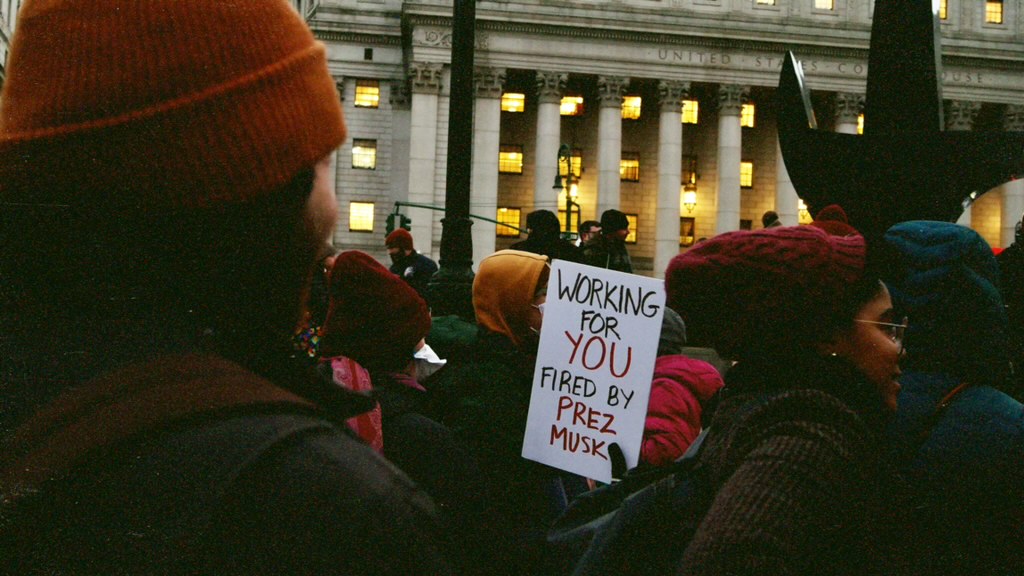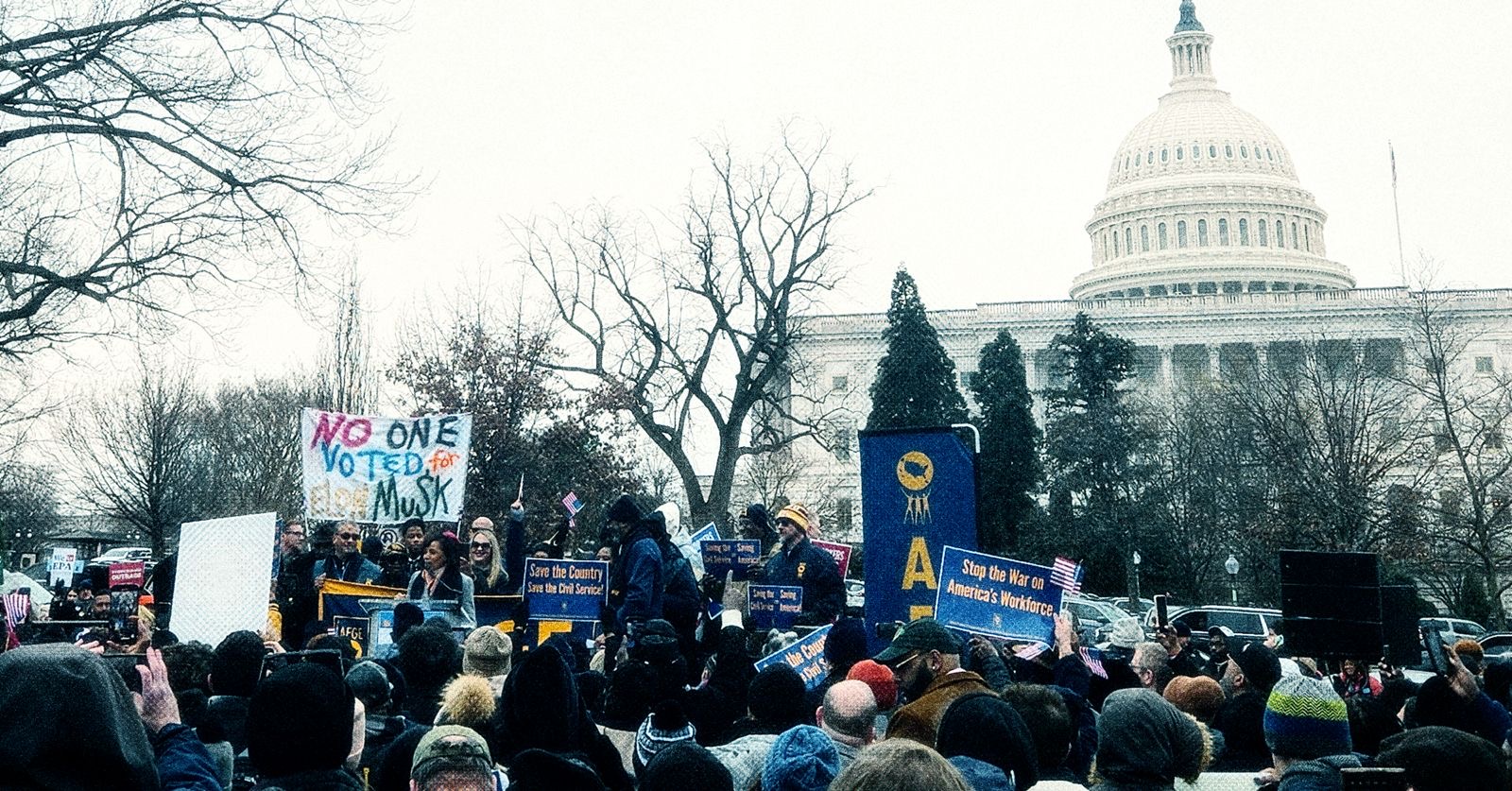Imagine that it’s 10 a.m. in the Pacific Northwest, in the biggest factory in the world. You walk through the gate, go up some stairs, enter Boeing’s 777X Composite Wing Center, then take another door outside.
You are greeted by a thousand mechanics marching around the perimeter of the factory and they invite you to join in, but warn that you need earplugs. They are waving signs that say VOTE NO, PENSION NOW, STRIKE!!!! As you march through the factory, they are banging pots and pans, blowing whistles, using megaphones and noisemakers.
Stewards give speeches that the crowd can hardly hear, but folks cheer anyway, until eventually they find a megaphone that works, and the lead steward announces that in a few days, they are voting this contract down, to thunderous applause.
Now, imagine, after seeing this rank-and-file action with your own eyes, you hear local media, politicians, and the Boeing company celebrating the company’s contract offer as a “historic” agreement. Quite a disconnect. It’s the members, not unelected staff, not lawyers, who are fit to manage their own affairs and have the power to change society. And this Machinists (IAM) District 751 membership has a level of solidarity and togetherness that is remarkable.
Last Thursday 32,000 members voted to reject the tentative contract — which was recommended by union leaders — by 95% and to strike by 96%. These are big league numbers that should have Boeing’s new CEO, Kelly Ortberg, intimidated.
On Friday, September 13 at midnight, third shift workers walked off the job and the strike began. Fireworks went off in Everett, Washington; picketers blasted early 2000s tunes from Bluetooth speakers and hoisted picket signs. Similar events happened at the Renton factory, home of the 737 Max line, one of the company’s biggest moneymakers.
How did the IAM members build this level of solidarity? I can think of a few reasons.
Context
- In 2014, Boeing Machinists had their pension stolen from them in secret negotiations in between contracts.
- They haven’t had a real contract negotiation since 2008.
- Starting rates are only $19 an hour in an area with a high cost of living, with only 1% raises in a time of drastic inflation. A not-insignificant amount of machinists are living out of their cars.
- Labor’s upsurge is galvanizing, as people have listed the United Auto Workers’ strike last fall as inspiration.
Shop floor activity and communication
- Repeated noisemaking marches through the factory brought people together and showed management they were not afraid. Day after day, the marches got bigger and bigger!
- The union organized numerous barbecues to gauge member needs in the contract.
- Communication networks like “The LAZY B” Facebook group with over 12,000 members promote constant union chatter.
- Numerous smaller groups for different sites like the Everett plant.
Why the rejected contract TA wasn’t historic
- The “win” of Boeing’s promise to build the 797 in the Puget Sound is a paper tiger. It’s possible but unlikely the company will start a new airplane soon. Former CEO Dave Calhoun himself, who just stepped down, said that it’s unlikely Boeing starts a clean-sheet-design airplane, a new midsize plane or a derivative, before 2030. The company is still trying to certify the 777x, which is years behind schedule.
- The 25% raises over four years being touted by the media are not enough. Consider how much inflation we’ve had the past few years, and then consider that the AMPP bonus, which can award members up to a few thousand dollars every year, depending on (flawed) performance metrics, was taken away.
- The proposal did not include the return of the pension, which was stolen from the Machinists in a low-turnout vote in January 2014, deliberately held over the holidays.
- You can find more details in the “viral” poster below, which was plastered all over the Everett, Auburn, and Renton factories.
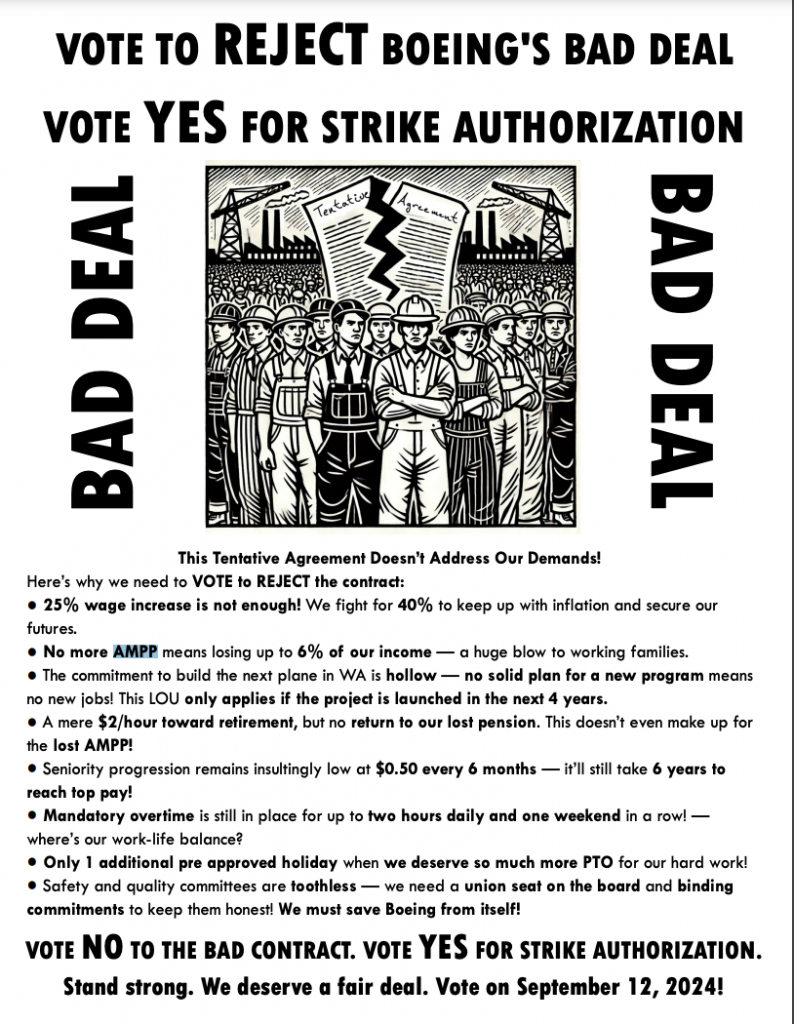
Boeing Management Tries to Divide and Conquer
The second biggest union at Boeing, the Society of Professional Engineering Employees in Aerospace (SPEEA), which represents 14,000-16,000 members in the Puget Sound and a few thousand in other areas, has signaled strong support for the Machinists. SPEEA is mobilizing members to wear red for “Machinist Mondays,” distributing “I support IAM751” swag, having “SPEEA Supports IAM751” custom picket signs at each gate for members to pick up, and putting out a QR code at each site for members to sign up as SPEEA solidarity picket captains.
But Boeing is trying to divide and conquer. A memo from a manager in the Auburn plant was leaked, soliciting SPEEA members to do IAM 751 bargaining unit work during the strike, effectively scabbing. SPEEA President John Dimas said on the union’s website, “Our message to members is absolutely do not volunteer to do any work normally done by IAM members,” and SPEEA stewards have quickly communicated this stance.
And then on Monday, an email from Boeing CFO Brian West announced shocking cuts – a hiring freeze, no more travel, no more catered events, and possible furloughs. Everyone laughed at the curtailing of executives’ first-class flights, but West also forecasted that parts of the workplace would be furloughed because of the strike.
SPEEA’s contract forbids furloughs (that is, forced days off without pay), though there is a process for layoffs. At the end of the day all contracted temporary employees in Boeing Commercial Aircraft (usually retirees rehired in a more advisory role) were laid off, which could precede the layoff of represented employees.
All of this is a classic management tactic to divide the workforce and turn SPEEA members against the Machinists’ strike. SPEEA members will need to inoculate members against management propaganda and keep the focus on Boeing executives’ gross mismanagement of the company.
This Fight Is Important for Socialists
Unionized aerospace workers have a tremendous amount of power, as commercial aircraft are one of the biggest-ticket items that we manufacture in the U.S. and sell to other countries. Stopping production of commercial aircraft costs Boeing over $110 million per day.
But the economic impact is much deeper than that. Consider how many airlines depend on receiving Boeing planes. And as Boeing has outsourced more and more manufacturing to other companies, the company now has suppliers basically dedicated to producing parts for it in almost every state in the U.S. So there are huge downstream effects of a work stoppage at Boeing, potentially causing hundreds of billions of dollars in impact across more than 40 states. Thus it was inevitable that a federal mediator step in; the U.S. government has an interest in Boeing continuing to manufacture airplanes.
As well, this fight can show the public that workers can band together and create safer conditions for all of us.
And, though there is not much defense manufacturing in the Puget Sound, globally Boeing is also a major weapons exporter. Unlike Airbus, which is more directly subsidized by countries in the EU on the “front end,” Boeing is subsidized on the “back end” via military contracts.
CEO after CEO, selected by a board that represents a “who’s who” of villainous corporations, has come and gone and run the company extremely poorly, prioritizing stock prices over passenger safety. Boeing should probably be owned by and accountable to the public. The public could choose to subsidize the company, but with strings attached, with more focus on safety. And the voting public could choose a real “just transition” from the military-industrial complex, choosing to create more jobs in commercial aircraft and wind down the Boeing Defense division. Having a militant base and a socialist base in aerospace unions is a key step towards any just transition.
What DSA is Doing
DSA chapters in Seattle, Portland, Tacoma, and Snohomish County include IAM Machinists that work at Boeing. It’s been a great opportunity for cross-chapter solidarity with support from national. Our chapters are all together in shared signal chats to share news and lessons we’ve learned. We’ve arranged a few meetings between our chapters and attended each other’s labor working group meetings. And on Saturday, we mobilized 75 members to picket sites near each chapter, in four cities. DSA members on the line included members of SPEEA, Washington Education Association, UNITE HERE Local 8, Washington Federation of State Employees, Service Employees, Office and Professional Employees, and United Auto Workers 4121.
Join the Fight
If you’re in Seattle, Portland, Snohomish County, or Tacoma-Pierce County, get plugged in and show up to a Machinist picket line as soon as you can! Have good conversations with workers and listen to their concerns. Donate to their strike fund. Let’s make Boeing pay!

